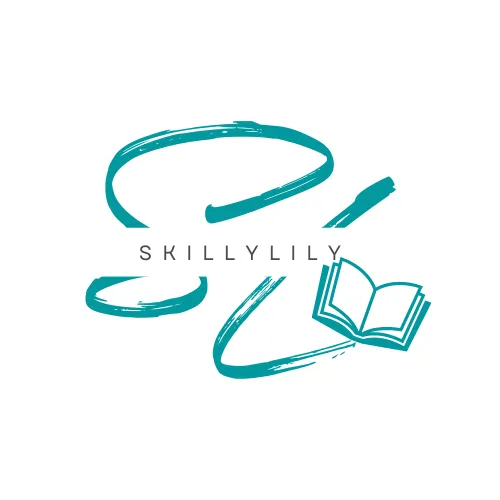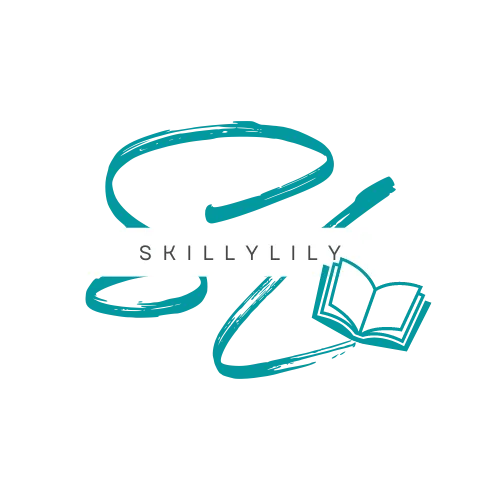BLOG

Financial Planning and Budgeting Tips for Small Business in 2024
Financial Planning and Budgeting Tips for Small Business in 2024
Embarking on the entrepreneurial journey is an exhilarating experience, but it's no secret that small business owners face a myriad of challenges. From the relentless ebb and flow of market trends to the daily intricacies of managing operations, every decision seems like a crucial one. In this introduction, let's delve into the unique hurdles small business owners encounter, emphasizing the pivotal role of financial planning and budgeting in navigating these challenges.
A. Brief Overview of My Small Business Challenges

As a small business owner, I've navigated the unpredictable seas of entrepreneurship. Limited resources, cutthroat competition, and the perpetual need to adapt to the market's ever-changing dynamics have been constants in my journey. Managing cash flow, staying competitive, and balancing growth demands are challenges that resonate deeply with many entrepreneurs. Recognizing and understanding these challenges is the first step towards finding effective solutions and steering the business ship toward calmer waters.
B. Importance of Financial Planning and Budgeting in My Journey
In the face of these challenges, financial planning and budgeting emerge as unsung heroes. Financial planning provides the structured approach needed to reach business goals, acting as a reliable roadmap. On the flip side, budgeting serves as a tactical tool, ensuring that every resource is allocated with precision, and fostering financial stability and growth.
As a small business owner with inherent resource constraints, I've experienced firsthand the transformative power of disciplined financial management. These practices not only help manage day-to-day expenses but also empower me to make informed decisions, strategically allocate resources, and weather financial storms with resilience. Through financial planning and budgeting, I've discovered a compass that guides me through economic uncertainties and unexpected market shifts.
C. My Commitment and Experience
My commitment to sharing insights on financial planning and budgeting stems from a deeply personal place. As a fellow small business owner, I recognize the value of practical advice grounded in real-world experiences. My journey in entrepreneurship has been a dynamic learning experience, filled with victories, setbacks, and invaluable lessons.
It's this firsthand knowledge that fuels my passion for empowering other small business owners to navigate the financial intricacies of entrepreneurship successfully. Through this guide, I aim to share not just theoretical concepts but actionable strategies born out of the day-to-day challenges faced in the business trenches. Together, let's embark on a journey to conquer financial challenges, learn from each other, and chart a course toward sustainable success in the competitive business landscape.
II. What is Financial Planning and Budgeting?

Navigating the Financial Landscape
A. Defining Financial Planning
Financial planning is the North Star that guides the journey of a small business. It involves the deliberate process of setting clear and measurable goals, acting as a compass that directs every financial decision. For me, this means establishing milestones that go beyond mere numbers – goals that embody the essence of what I want my business to achieve. Whether it's increasing revenue, expanding market share, or introducing innovative products, each goal is a beacon illuminating the path to success.
Moreover, financial planning isn't just about the present; it's a forward-looking endeavor. Forecasting plays a crucial role in anticipating market trends and potential challenges. By analyzing past data and industry trends, I gain the foresight needed to make proactive decisions. This element of financial planning is akin to having a weather forecast before setting sail – it helps me navigate the business seas with preparedness and agility.
B. Unraveling the Essence of Budgeting
Budgeting, on the other hand, is the hands-on, day-to-day toolkit that brings the financial plan to life. It's not just about crunching numbers; it's a strategic endeavor that involves meticulous planning and allocation of resources. In my experience, understanding the essence of budgeting has been a game-changer.
1. Budget as a Tactical Tool for Resource Allocation
Budgeting serves as a tactical tool, akin to a ship's navigation system, ensuring that resources are allocated efficiently and effectively. It involves breaking down financial goals into tangible, actionable steps. For instance, when allocating funds to marketing efforts, I don't just look at the overall budget; I break it down to understand the specific needs of each campaign. This granular approach allows for strategic resource allocation, ensuring that every dollar spent contributes directly to the larger objectives outlined in the financial plan.
2. The Importance of Aligning Budgeting with Overarching Business Goals
However, budgeting isn't a standalone process; it must be tightly intertwined with overarching business goals. In my journey, I've found that aligning budgeting with these broader objectives is paramount. If the financial plan is the map, the budget is the route charted on that map. Each expense and each investment is a deliberate step toward the realization of those larger goals. This alignment ensures that every financial decision resonates with the strategic direction of the business, fostering synergy between daily operations and long-term objectives.
In essence, financial planning and budgeting are not isolated tasks; they are interconnected components that drive the engine of a small business. Clear goals, informed forecasting, tactical resource allocation, and alignment with broader objectives create a powerful framework for financial success. As a small business owner, mastering this art is not just about managing numbers; it's about steering the ship of your business toward a future of sustainable growth and prosperity.
III. How to Manage Budgets and Financial Plans

Navigating the Financial Seas with Foresight
A. Embracing Adaptability for Long-Term Success
In the unpredictable world of business, adaptability is not just a desirable trait; it's a prerequisite for long-term success. As a small business owner, I've learned that rigid financial plans are akin to sailing without the ability to adjust the sails. To navigate the ever-changing seas, regular review and adjustment of financial plans are not just recommended; they are essential. This involves a continuous evaluation of financial performance against set goals, ensuring that the business remains on course.
1. Regular Review and Adjustment of Financial Plans
Regular reviews allow for a real-time assessment of the business's financial health. By revisiting the financial plan periodically, I can identify areas of strength and weakness. This ongoing evaluation enables me to make informed decisions, tweak strategies, and stay agile in response to shifts in the market or internal changes within the business.
2. Navigating Unexpected Challenges and Opportunities
Adaptability goes beyond just adjusting numbers on a spreadsheet. It involves the ability to navigate unexpected challenges and seize opportunities that may arise. Whether it's a sudden shift in consumer behavior, an economic downturn, or an unexpected market trend, a flexible financial plan equips me to respond effectively. It's about being prepared for the unexpected, turning challenges into opportunities, and steering the business towards sustainable growth.
B. Meticulous Expense Management
Effective financial management extends to every dollar spent, making meticulous expense management a cornerstone of success.
1. Identifying Areas for Cost Optimization
Every business has areas where costs can be optimized without compromising quality. Through scrutiny of expenses, I identify opportunities for streamlining operations. This might involve renegotiating contracts with suppliers, finding more cost-effective solutions for services, or eliminating redundant processes. This fine-tuning not only maximizes efficiency but also contributes directly to the bottom line.
2. Negotiating with Vendors and Controlling Recurring Expenditures
Building strong relationships with vendors is a strategic move in the world of small business. By negotiating favorable terms and exploring bulk discounts, I can reduce costs without sacrificing quality. Additionally, controlling recurring expenditures involves a disciplined approach to evaluating the necessity and effectiveness of ongoing expenses. This proactive management ensures that the business is not burdened by unnecessary financial commitments.
C. Strategic Resource Allocation
Resource allocation is a delicate balancing act, requiring a strategic mindset to ensure that every expenditure contributes meaningfully to business growth.
1. Ensuring Every Expenditure Contributes to Business Growth
Each dollar spent should align with the broader objectives outlined in the financial plan. Whether it's investing in marketing initiatives, upgrading technology, or hiring new talent, every expenditure is a deliberate step toward fostering growth. This strategic alignment ensures that resources are directed to areas that contribute most effectively to the overall success of the business.
2. Optimization of Resources for Maximum Impact
Optimizing resources involves more than just allocating funds; it's about maximizing the impact of those resources. This might involve cross-functional collaboration, leveraging technology for efficiency, or exploring innovative approaches to traditional processes. By optimizing resources, I ensure that the business operates at peak efficiency, extracting the maximum value from every investment.
D. Implementing Risk Mitigation Strategies
The business landscape is fraught with uncertainties, and as a small business owner, implementing risk mitigation strategies is akin to fortifying the ship against potential storms.
1. Developing Contingency Plans
Contingency planning involves anticipating potential risks and formulating actionable plans to mitigate their impact. This might include scenarios like supply chain disruptions, economic downturns, or sudden shifts in customer preferences. By having contingency plans in place, I can respond swiftly to unforeseen circumstances, minimizing the impact on the business.
2. Building Emergency Funds for Business Resilience
In the face of unforeseen challenges, having a financial cushion is invaluable. Building emergency funds is a proactive measure that provides the business with the resilience needed to weather unexpected storms. Whether it's a sudden drop in revenue or an unanticipated expense, having financial reserves ensures that the business can continue operating without compromising its long-term viability.
In conclusion, managing budgets and financial plans is a dynamic and ongoing process that requires a combination of foresight, adaptability, and strategic decision-making. By embracing adaptability, meticulously managing expenses, strategically allocating resources, and implementing risk mitigation strategies, small business owners can navigate the financial seas with confidence, ensuring not only survival but sustainable growth in the unpredictable world of entrepreneurship.
IV. Financial Planning and Budgeting Courses - Free and Accessible

Embarking on the Learning Voyage
A. Coursera: A Treasure Trove of Knowledge

As an advocate for continuous learning, Coursera stands out as a treasure trove of knowledge for small business owners seeking to master the art of financial planning and budgeting. This platform, renowned for its collaboration with top universities and institutions, offers an array of free courses tailored to empower entrepreneurs.
Overview of Free Courses on Financial Planning and Budgeting
Coursera's free courses cover a spectrum of topics, ranging from the fundamentals of financial planning to advanced budgeting strategies. These courses provide a comprehensive understanding of the principles that underpin sound financial management. As a small business owner, I've personally benefited from the diverse range of courses, which cater to various skill levels and learning preferences. The convenience of online learning allows me to engage with the content at my own pace, ensuring that I can apply newfound knowledge directly to my business.
B. Khan Academy: An Interactive Learning Hub

For those who prefer a more interactive and user-friendly learning experience, Khan Academy emerges as a beacon in the vast sea of online education. This platform offers a plethora of free courses on financial planning and budgeting, transforming complex concepts into digestible lessons.
Exploring User-Friendly Courses and Interactive Exercises
Khan Academy's strength lies in its user-friendly interface and engaging teaching methods. Through video lessons and interactive exercises, I've found that complex financial concepts become more accessible and easier to apply to real-world scenarios. The platform's commitment to providing a free, world-class education makes it an invaluable resource for small business owners seeking to enhance their financial literacy.
C. edX: Bridging Gaps in Expertise

edX, with its collaborative approach involving industry experts and prestigious institutions, serves as a bridge for small business owners looking to deepen their expertise in financial planning and budgeting.
Collaboration with Industry Experts and Institutions
One of the standout features of edX is its collaboration with industry experts and institutions globally. This ensures that the courses offered are not only comprehensive but also relevant to the ever-evolving landscape of business finance. As a small business owner, being able to access insights from experts in the field has been instrumental in refining my financial strategies.
Free Courses Covering Financial Planning Essentials and Advanced Strategies
edX's commitment to making education accessible is evident in its array of free courses covering everything from financial planning essentials to advanced budgeting strategies. These courses cater to a diverse audience, allowing small business owners to tailor their learning journey based on their specific needs and goals.
In summary, the availability of free and accessible courses on platforms like Coursera, Khan Academy, and edX has revolutionized the way small business owners can acquire and apply financial knowledge. By leveraging these resources, entrepreneurs can strengthen their financial acumen, gain practical insights, and ultimately make more informed decisions for the prosperity of their businesses. Learning is an ongoing voyage, and these platforms provide the compass for small business owners to navigate the complexities of financial planning and budgeting with confidence.
V. Financial Planning and Budgeting Software - Sailing Smoothly with Technology

Navigating the Digital Waters with Precision
A. QuickBooks: Your Financial First Mate

In the vast sea of financial management tools, QuickBooks stands out as the indispensable first mate for small business owners. This robust software is designed to simplify the complexities of accounting, making it an essential tool for tracking expenses, managing payroll, and maintaining financial clarity.
Simplifying Accounting, Tracking Expenses, and Managing Payroll
QuickBooks is a comprehensive financial solution that streamlines the often daunting task of accounting. From tracking income and expenses to generating detailed financial reports, this software ensures that small business owners have a real-time overview of their financial health. Its user-friendly interface facilitates smooth navigation, allowing even those without an accounting background to efficiently manage financial transactions.
Moreover, QuickBooks serves as a payroll management powerhouse. Small business owners can handle payroll tasks seamlessly, from calculating employee salaries and deductions to generating tax forms. The automation of payroll processes not only saves time but also minimizes the risk of errors, ensuring compliance with regulatory requirements.
B. Wave: Navigating Financial Waves with Ease

For small businesses seeking a cost-effective yet powerful financial management solution, Wave emerges as a reliable companion for navigating the financial waves with ease.
Free Accounting and Invoicing Software for Small Businesses
Wave offers free accounting and invoicing software tailored specifically for the unique needs of small businesses. The platform provides essential tools for tracking income and expenses, generating invoices, and maintaining a clear view of cash flow. Its intuitive design ensures that small business owners can effortlessly manage their financial processes without the burden of hefty subscription fees.
Wave's accessibility is a boon for businesses operating on a tight budget. Small business owners can benefit from the features of a premium financial management tool without compromising on the quality of service. This makes Wave a valuable asset for those looking to optimize their financial processes without breaking the bank.
C. YNAB (You Need A Budget): Charting Financial Courses with Precision

In the realm of budgeting, YNAB, or You Need A Budget, takes center stage with its unique approach to financial management. It goes beyond conventional budgeting tools, providing a precision-oriented platform that empowers small business owners to chart their financial courses with unparalleled accuracy.
Unique Approach to Budgeting with Real-Time Tracking and Goal Setting
YNAB's distinctive approach involves giving every dollar a specific job. This real-time tracking ensures that each expenditure aligns with a predefined purpose, fostering a sense of financial discipline. The platform's emphasis on goal setting is a game-changer, allowing small business owners to allocate resources strategically and work towards achieving their financial objectives.
Real-time tracking goes beyond traditional budgeting by providing a dynamic and responsive view of the business's financial health. This level of precision allows for proactive decision-making, ensuring that small business owners have the agility to adapt to changing circumstances swiftly.
In conclusion, the advent of financial planning and budgeting software has revolutionized the way small business owners manage their finances. QuickBooks, Wave, and YNAB exemplify the diverse range of tools available to entrepreneurs, each catering to specific needs and preferences. By leveraging these technologies, small business owners can navigate the digital waters with precision, ensuring that their financial ship sails smoothly toward sustained success.
VI. Conclusion

A. Emphasizing the Ongoing Nature of Financial Planning and Budgeting
In wrapping up our exploration of financial planning and budgeting for small businesses, it's essential to highlight their perpetual nature. Much like a sailing journey in ever-changing seas, financial strategies need constant navigation and adjustment. Treating them as dynamic, living documents ensures adaptability to evolving market conditions, supporting sustained success.
B. Encouraging Adaptability, Staying Informed, and Refining Financial Strategies
Adaptability is your business's anchor amidst uncertainties. As we conclude, I urge fellow entrepreneurs to foster adaptability, stay informed on industry trends, and refine financial strategies. This trifecta ensures your business not only weathers challenges but proactively seizes opportunities.
C. Concluding with Well Wishes for the Reader's Small Business Success
In closing, my best wishes go to you, the reader, on your entrepreneurial journey. May the shared insights guide your financial ship to success. Embrace adaptability, stay informed, and continually refine your financial strategies. May your small business not just endure but flourish, navigating the dynamic business seas with resilience and innovation. Here's to your entrepreneurial success!
Start Here
Copyright © SkillyLily 2023. All right reserved


